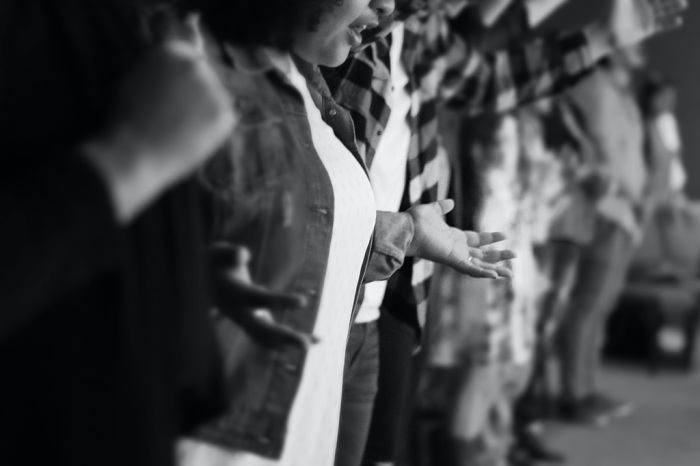Most common religious identity among young adults is 'none;' belief in God not necessary for morality: study

The most common religious identity among young adults in the U.S. is "none," and the majority of Americans don’t believe it’s necessary for a person to believe in God to be moral and have good values, a new survey has found.
Released Tuesday, AEI’s Survey Center on American Life investigating contemporary religion in the U.S. found that among young adults (age 18 to 29), the most common religious identity today is none. More than one in three (34%) young adults are religiously unaffiliated.
Nearly nine in 10 (87%) Americans report they believe in God, but just over half (53%) report they believe in God without any doubts at all. Of these, more than eight in 10 white evangelical Protestants (87%) and black Protestants (83%) say they are absolutely certain God exists.
Overall, 42% of Americans have a close social connection with someone who is religiously unaffiliated — up from 18% in 2004.
Additionally, most Americans say it's not necessary for a person to believe in God to be moral and have good values. Close to six in 10 (59%) Americans say a belief in God is not a precondition to being moral and having good values, while 41% of the public say a belief in God is essential.
These statistics, the authors say, mark a “remarkable shift in recent years.”
The study also found that Americans are almost equally divided over whether it is better to discuss religious beliefs and ideas with those who do not share the same perspective, and most Americans have never been invited to church. A majority (54%) of Americans say they have not been asked to participate in a religious service in the past 12 months or have never been asked.
The survey corroborates a 2019 Pew Study survey that documented the decline of Christians and rise of religiously unaffiliated. Pew noted that the religiously unaffiliated group rose to 22.8% share of the population in 2014, eclipsing the number of Catholics in America, who fell to 20.8%.
Christians as a whole fell from 78.4 to 70% of the population between 2007 to 2014, with every major group experiencing a decline.
Similarly, the 2018 General Social Survey found that the number of religious “nones” in the U.S. are now statistically equal to the number of evangelicals.
Ryan Burge, a political science researcher at Eastern Illinois University who analyzed data from the survey, told The Christian Post that the religious “‘nones’ are not slowing down.”
“Their share of the population is continuing to climb 1% every two years and has done so for the past 15 years or so. If current trends keep up then they will be the largest group in the United States in the next five years, statistically.”
Russell Moore, president of the Ethics & Religious Liberty Commission of the Southern Baptist Convention, previously said the "increasing strangeness" of Christianity is actually "good news" for the church.
"Christianity isn't normal anymore. It never should have been. The increasing strangeness of Christianity might be bad news for America, but it's good news for the church. The major newspapers are telling us today that Christianity is dying, according to this new study, but what is clear from this study is exactly the opposite: while mainline traditions plummet, evangelical churches are remaining remarkably steady," Moore said in a statement.
He added that statistics indicate there are honest atheists in America today, and that they are rejecting what's called "almost-Christianity," or traditions that "jettison the historic teachings of the Church as soon as they become unfashionable."
"The churches that are thriving are the vibrant, countercultural congregations that aren't afraid to not be seen as normal to the surrounding culture. This report actually leaves me hopeful. The Bible Belt may fall. So be it," he continued.
"Christianity emerged from a Roman Empire hostile to the core to the idea of a crucified and resurrected Messiah. We've been on the wrong side of history since Rome, and it was enough to turn the world upside down."




























